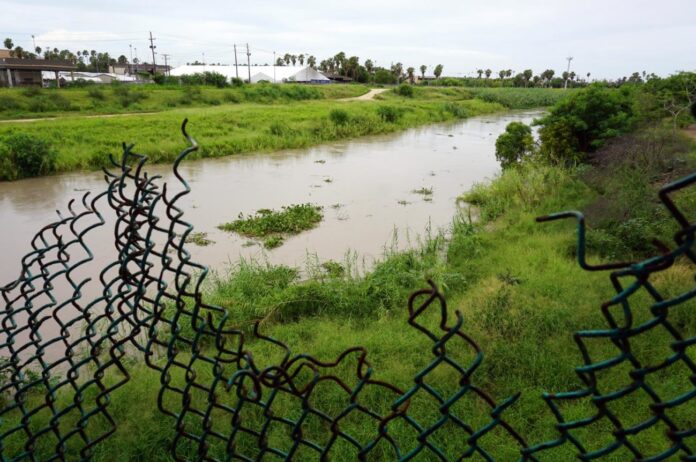
HARLINGEN — State and federal officials announced Thursday a deal has been reached with Mexico to ensure it fulfills its treaty obligations to supply water for the Rio Grande system.
The agreement means U.S. residents and agricultural interests will be able to access the additional flows for drinking water and irrigation as part of a 1944 water-sharing agreement between the two countries.
The treaty requirement holds Mexico to release 1.75 million acre-feet of water into the Amistad and Falcon international reservoirs during a five-year cycle. The current cycle was set to end Oct. 25, with Mexico in significant arrears on its treaty obligation.
At the end of July, Mexico owed an additional 418,829 acre-feet to make good on the five-year treaty requirement. Mexico owes about 105,000 acre-feet at present.
“This agreement helps ensure that water obligations will be met before the end of this cycle, providing a much-needed resource to communities in the region,” Texas Gov. Greg Abbott said in a statement. “This water is essential for Texans along the Rio Grande to grow crops, provide food, and support local municipalities and businesses.
“Thank you to TCEQ (Texas Commission on Environmental Quality) and Secretary Pompeo (Secretary of State Mike Pompeo) for working diligently with Mexican officials to secure this agreement and fulfill the terms of the treaty,” the governor added.
The International Boundary and Water Commission has been lobbying Mexican officials vigorously for them to live up to the treaty requirements.
“We appreciate the efforts by Mexican government officials to fulfill their treaty obligations on time,” said IBWC Commissioner Jayne Harkins. “This agreement sets us on a path to improve Rio Grande management in the future to the benefit of both countries.”
Humberto Marengo, commissioner of CILA, the Mexican section of the IBWC, said Mexico has always been committed to its treaty obligations.
“I appreciate the humanitarian support offered by the United States so that, if needed, the Mexican communities that depend on the Rio Grande for their supply will have the necessary backing to cover their municipal needs, as established in Article 4 of Mexico’s Constitution,” Marengo said.
There are six Mexican rivers and streams covered by the water treaty — the Conchos, Arroyo las Vacas, San Rodrigo, Escondido, Salado and San Diego. Of these, only the Rio Conchos, which enters the Rio Grande near Presidio, and the Salado River, which flows into Falcon International Reservoir, are significant.
Of those six rivers, the treaty stipulates that the United States will receive one-third of the flow, which Mexico is required to release from dams into the Rio Grande watershed.
Sonny Hinojosa, general manager of Hidalgo County Irrigation District No. 2 and an expert on Valley water, said his agency has been in constant communication with TCEQ and the IBWC over resolving the Mexico water shortage.
He said Mexico is incapable of actually releasing water quickly enough to meet the Oct. 25 deadline, and what is actually occurring is that Mexico will transfer title to ownership of its water already in the Falcon and Amistad reservoirs to the United States.
“It’s a huge relief,” Hinojosa said.
This cycle isn’t the first one where Mexico has waited until the last minute to satisfy its treaty obligations. Instead of releasing water routinely throughout a five-year cycle, Hinojosa said Mexico is taking advantage of treaty wording to procrastinate.
“We have been asking for that for decades,” he said. “We would love to have 350,000 acre-feet per year, and that’s an issue that we’ve been addressing for the longest time.”
“The treaty in two or three different places talks about a minimum annual contribution of 350,000 acre-feet,” he added. “Only in one place in the treaty does it say over a five-year period you get 1.75 million. And that’s what Mexico always counts on. They keep going back to that one phrase, and they’re going to wait it out every cycle hoping that a storm event fulfills their delivery requirements. That’s exactly what happened to them this time.”
Mexican officials have been reluctant to release water that would satisfy their treaty requirements due to protests by Mexican farmers who want to ensure they have enough water for irrigation.
As of Thursday, Falcon International Reservoir was only at 21-percent capacity, and Amistad Reservoir was at 37-percent capacity.
“This is important for our farmers because right now, they’re deciding what crops they’re going to grow next spring,” Hinojosa said. “And that plan has to be done now. And having that water in storage means a lot, you don’t have to gamble to see if we will get it or not, it’s there already.”




